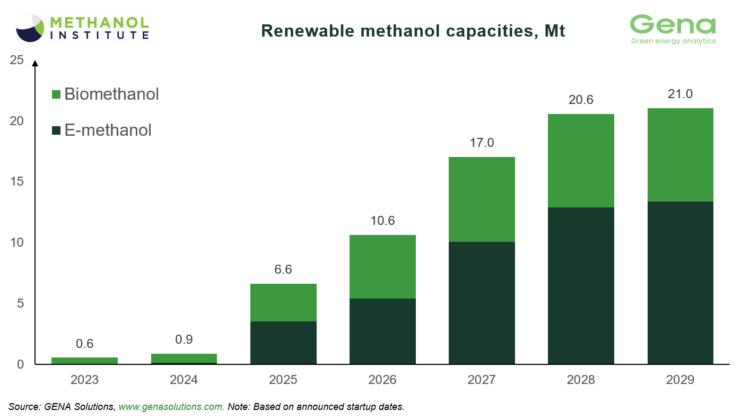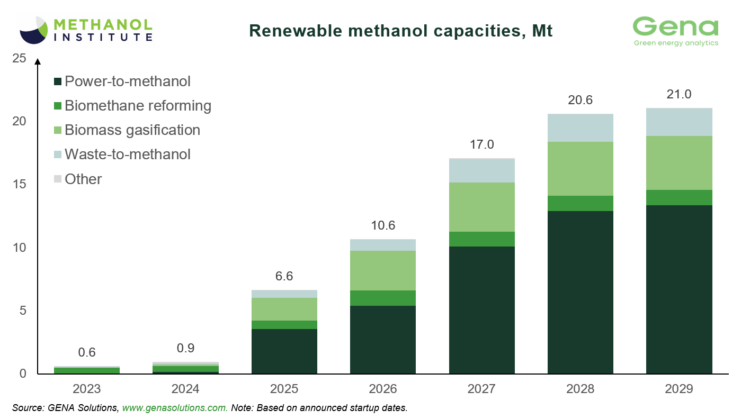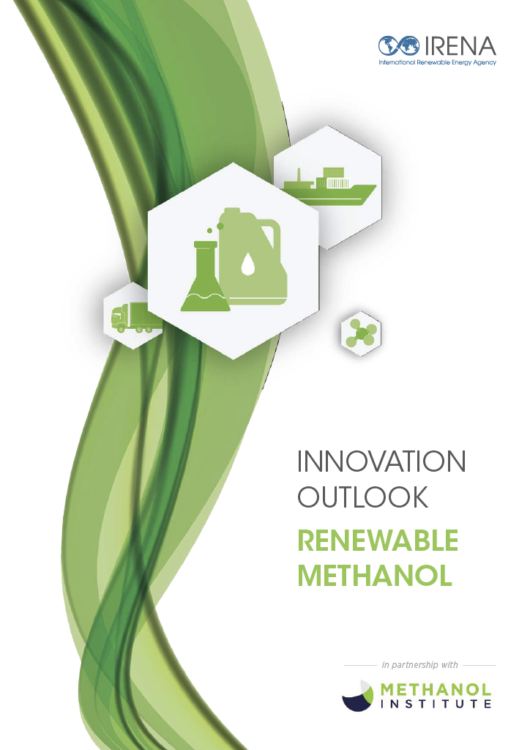Compared to conventional fuels, renewable methanol cuts carbon dioxide emissions by up to 95%, reduces nitrogen oxide emissions by up to 80%, and completely eliminates sulfur oxide and particulate matter emissions.
Methanol (CH3OH) is a liquid chemical used in thousands of everyday products, including plastics, paints, cosmetics and fuels. Liquid methanol is made from synthesis gas, a mix of hydrogen, carbon dioxide and carbon monoxide. These simple ingredients can be sourced from a wide range of feedstocks and using different technology approaches.
Renewable methanol is an ultra-low carbon chemical produced from sustainable biomass, often called bio-methanol, or from carbon dioxide and hydrogen produced from renewable electricity.

The Methanol Institute (MI) has partnered with Finland’s GENA Solutions Oy on the development of a robust database of biomethanol and e-methanol projects. As of March 2024, the database tracks 139 renewable methanol projects globally, with a total capacity of 17 million metric tons by 2027 and 21 million tons (7 billion gallons/26.5 billion liters) by 2029. Projected capacities for e-methanol are expected to reach 10.1 million tons by 2027 and 13.3 million tons by 2029, while biomethanol could see increases to 6.9 and 7.7 million tons respectively during the same periods.
In the methanol industry, GENA has conducted studies on over 500 renewable and fossil fuel plants and projects globally. The analysis methodology involves a diligent examination of technologies, material balances, costs, emissions, schedules, commercial, and financial strategies for every facility within the comprehensive database. The project statistics encompass projects from pre-feasibility to operational stages, excluding closed or frozen projects, as well as concept-stage projects.
Technical Knowledge Webinar on Green Hydrogen and Green Methanol
Organized by MI, NSEFI and IWPA, this webinar includes plenary sessions on the different facets of producing green hydrogen through green methanol, methanol as a hydrogen carrier and other applications of green methanol followed by Q&A session with industry experts from around the world. The webinar gives a platform to gain insights, learn about solutions and explore potential opportunities for collaboration on clean energy projects in India.
MI and IRENA Release Joint Report on Renewable Methanol
Methanol is essential for the chemical industry and represents an emerging fuel for a wide range of uses. Although largely produced from fossil fuels, it can also be made from sustainable, renewable-based energy sources. This outlook from the International Renewable Energy Agency (IRENA) and the Methanol Institute identifies challenges, offers policy recommendations and explores ways to produce renewable methanol at a reasonable cost.




